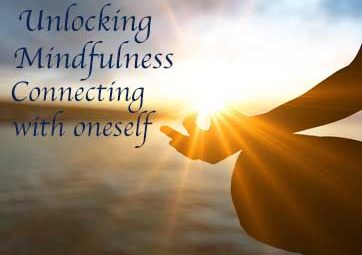Ultimately, meditation can allow us to have happiness independent of conditions and that is one heck of an awesome claim.
– Shinzen Young (Founder of Unified Mindfulness)
Welcome to this 8 week journey into learning the techniques of being Mindful, based on the internationally acclaimed system of Unified Mindfulness; an approach which has its roots in neuroscience.
Program Objective:
This program on Mindfulness Techniques is useful for people from every walk of life – working professionals, counsellors, therapists, students, homemakers or even someone who is retired.
Mindfulness as a concept is all about being in the present moment. Under the Unified mindfulness approach, a system which is used by leading institutions like Harvard and Carnegie Mellon for their research on meditation, it boils down to three attentional skills which can be learnt for rewiring the brain for happiness. These include – Concentration power, sensory clarity and equanimity.
Created with over 50 years of research and testing by Shinzen Young, the unified mindfulness approach is built with a rigorous precision around concepts and procedures.
Sathyanarayan Iyer, Leadership and Mindfulness Coach takes us through a comprehensive online workshop on developing Mindfulness, using the Unified Mindfulness techniques.
Participant Feedback from Previous Workshops
“I urge you that one should participate in Satya’s endeavour to explore Mindfulness and how he not only simplifies it for you but also breaks a lot of barriers about many states of mind that one goes through.” Vikram Bhagat – Facilitator @ Ventures, Mumbai
“It created a space of calm and ease for me in times of anxiety / fear. That helped me to mindfully communicate with those around me, instead of getting angry.” Sharmishtha Ranade – Heal Your Life Coach, Mumbai
“What I liked most about the session was the way of facilitation, clarity of subject and ease of understanding” Partha Roy – NLP Master Practitioner, Reiki Master, Kolkata
Program Benefits for Therapists (Healers/ Counsellors/ Psychotherapists)
The clinical value of mindfulness interventions has been demonstrated for many psychological difficulties, including depression, anxiety, chronic pain, substance abuse, insomnia, and obsessive-compulsive disorder.
The practise of mindfulness can be used as a tool in any type of therapeutic approach that the healing community may take, be it psychodynamic, cognitive-behavioral, or any other. Mindfulness practices can be tailored to fit the particular needs of their clients.
In addition, mindfulness can help the therapist get the following benefits:
- develop beneficial therapeutic qualities such as acceptance, attention, compassion and equanimity
- build a presence that helps enrich and enliven the work done
- help in avoiding burnout.
Susan M. Pollak, MTS, Ed.D., a psychologist in private practice in Cambridge, talks about the following benefits for therapists from mindfulness:
-
Mindfulness can be a refuge for the therapist
Recent research shows that therapists who practice mindfulness meditation have reported improvements in their relationships with their patients, saying they had a greater capacity for empathy, and experienced an increased ability to be present without being defensive or reactive
2. Mindfulness can deepen the therapeutic relationship
Mindfulness practices can be powerful tools to increase our tolerance for painful emotions, enhancing our ability to remain attentive while sitting with suffering. This is important for a strong alliance; because our patients usually express only those feelings they believe we can tolerate hearing. On the other hand, if we’re able to be with a fuller range of experience, this will help our patients do the same.
3. Mindfulness can be a tool for your clients/ patients
The goal in introducing mindfulness practices to patients is not to turn them all into dedicated meditation practitioners, but to help them find balance, kindness, and fulfilment in their lives.
About the Facilitator
Sathyanarayan Iyer is a leadership & Mindfulness coach based at Mumbai. He currently work with leaders empowering them on their journey towards being more effective in their approach with their teams. To know more about him, please visit his profile given at the bottom of this page.
Watch the film below where the Facilitator explains what to expect from this program.


